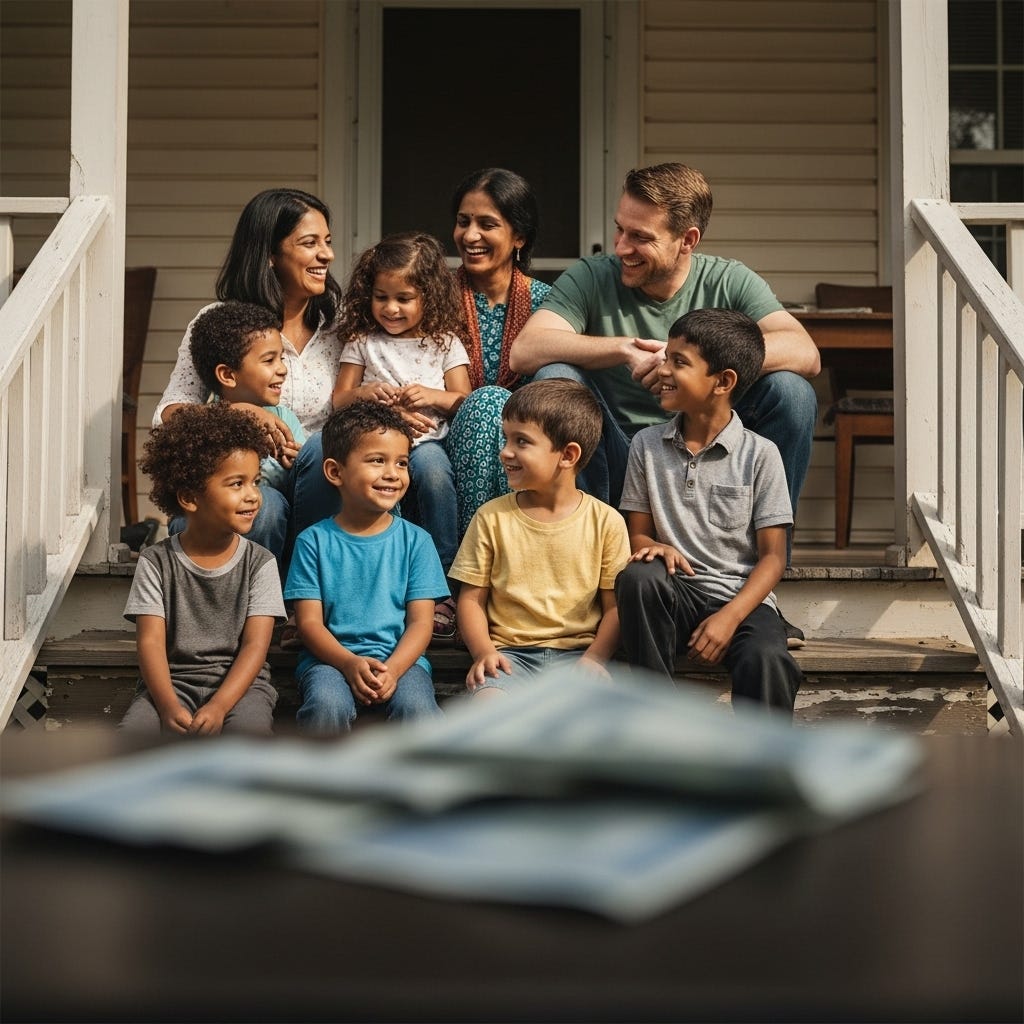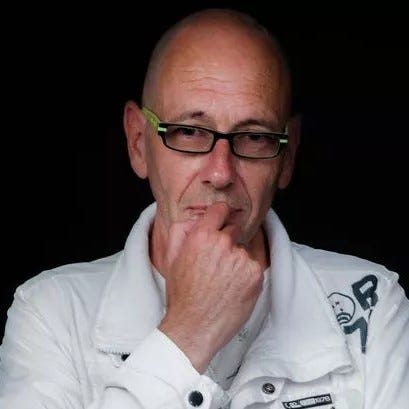Hatched, Matched, Despatched.
As tragic as it was, the recent drive-through incident at the Liverpool parade serves as a further reminder of just how fragile we all are and how temporary life is in reality. I listened to news radio reports where the main focus of attention leaned heavily towards the children who became unwitting casualties in the incident, regardless of everyone else. Comments such as “they had their whole lives ahead of them” were made as if they had died as a foregone conclusion, with no evidence to back up this allegation at such an early stage of the investigation.
I guess it’s just my BPD that causes me to see that children are no different from everyone else. I admit I'm not someone who fawns over children in any way. I went to school with a few, and they seemed okay. It’s just, to me, they exist like everyone else in the world, so what? Not one of us is immune to death, regardless of age. Without death taking place, the world would be even more overpopulated than it is in these current times, and this would literally cripple the infrastructure of the entire planet. So, in this respect, death is a positive rather than a negative. Some of us will die in tragic circumstances, others of natural causes; that’s just how it goes. Whether we choose to accept it or not, it’s an incontrovertible truth that bypasses age, religion, status, education, wealth, and more. When your number’s up, it’s up. Finale.
I write extensively about this in my book, by the way (amzn.to/3TzI5AQ). However, for now, events such as Liverpool and neighbouring Southport not only serve as stark reminders of the horrors of death but, perhaps to some, more importantly, of our attachment to life and that DNA necessity of species survival. As I again reflect on my book, I'm reminded of something the Lebanese-American writer and poet, Kahlil Gibran, wrote regarding children:
“Your children are not your children. They are the sons and daughters of Life’s longing for itself. They come through you but not from you, And though they are with you yet they belong not to you.”
How profound is that key word, “belong”? Verb: be the property of.
I don’t like the idea of ‘belonging’ to anything. Instead, I choose to be my own person. Even though I rarely, if ever, except for my book, discuss or scantly mention anything to do with my personal life, I have a son whom I detached myself from as soon as he reached eighteen. He is now very much his own man and totally independent of me in every respect, and for which I’m hugely proud of him as a person, as well as being my son.
Even though we’ve lived a relatively short distance from each other, it’s probably been somewhere in the region of maybe three, possibly even four years since we last saw one another, and maybe, well, a few months since we last spoke online at least, the mutual love, admiration, and respect is never lost. He regards me as the best father anyone could have for teaching him to take ownership of himself and utilise his own inner resources instead of relying on me for help.
We connected on Messenger again only last week for a brief catch-up, as we do when we have something important to say. By all accounts, he is doing well for himself because he’s always had a sharp mind. Or, as he put it, 'like father, like son,' on which I could not possibly comment, of course. You see, neither of us needs a running commentary on each other’s lives. So, when we eventually do catch up, we speak about meaningful, purposeful matters and events of significance to one another, and it’s the same with my close friends, too. We’re attached while being unattached.
I guess for me, being unattached while still being super close to my son and friends means holding onto my own space and emotional independence, even with all that deep love and connection. It's about loving and caring for them fiercely, but without needing them to make me feel complete or happy. This way, we get genuine connections, built on real respect, and everyone has the freedom to really be themselves. Our relationships are about appreciating each other, not about expectations or feeling like I own them. I know they enrich my life hugely, but my own worth and happiness? That's not tied to whether they're around or what they do.
I’ll give you an example. Around eighteen months ago, I reached out on Facebook to a former, very close female coworker I hadn't spoken with in almost a year. My intention was simple: just to check in, catch up, share some positive memories, and hopefully reignite a connection that felt like it had merely gone quiet, not vanished. However, she responded with a clear sense of bewilderment, questioning why I was only contacting her then after such a long silence. Despite my attempts to explain that, for me, being truly present in someone's life doesn't always require constant, overt communication—that I was still very much "in the background" and there for her as always, even if she hadn't consciously realised it—she firmly conveyed that I shouldn't try to connect with her again.
This experience really highlighted for me a common misunderstanding about the nature of connection. While I believe a genuine bond can endure without constant interaction, thriving on a less visible, supportive presence, many people seem to equate a lack of direct, physical, or consistent digital communication with a complete absence of care or an active connection. For them, out of sight truly is out of mind, and the absence of tangible engagement means the connection has simply ceased to exist. It's a stark difference in how we perceive and value ongoing relationships of any form.
It poses a fascinating question, and one I often ponder, particularly living here in Britain: how did we reach this point where we've become so deeply intertwined in each other's lives? We extend this assumed ownership even to people we have no direct connection with, as seen in the public reactions to tragic incidents like those at Southport and the Liverpool Parade. It seems we simply can't let people live their own lives, face their own dilemmas, or even offer support without being overtly "present" in their space. It brings to mind Albert Camus's powerful words: "Don't walk behind me; I may not lead. Don't walk in front of me; I may not follow. Just walk beside me and be my friend." There's a subtle but profound difference between truly walking beside someone in friendship and stepping into their experiences as if they're our own. Perhaps, in our collective desire to "accomplish miracles" or simply to care, we've blurred the lines of personal autonomy and genuine, detached empathy.
Now, while I am not in any way personally connected to or with Buddhism, I like their way of logical thinking. And so, from a Buddhist perspective, our collective tendency to become so intertwined in others' lives, even assuming ownership in matters not truly our own, really highlights the complexities of attachment. While our desire to "accomplish miracles" or simply to care is well-intentioned, it can become a subtle form of clinging – not to possessions, but to outcomes, expectations, or even a sense of being indispensable. Genuine compassion, as understood in Buddhism, is different; it's about wishing for others' well-being without grasping at how that should manifest or imposing our own solutions.
This means recognising suffering and wishing for its end, but without that possessive "I-making" or "mine-making" that blurs the lines of personal autonomy. The idea of being "present without being present," much like Camus's advice to "just walk beside me and be my friend," perfectly encapsulates the Buddhist ideal: offering boundless kindness and support, free from the kind of attachment that ultimately creates more suffering for everyone involved.
Now, while I’m not here to proselytise Buddhism, its beliefs in this respect do have a hugely significant point, and this is where I hit on a crucial point that lies at the heart of Buddhist practice, especially when it comes to the deepest bonds we form. It's true, to truly reach that ideal of detached empathy and non-ownership, we absolutely have to confront our assumptions of ownership, particularly when it comes to our children.
For me, this means recognising that while I'm his parent and deeply involved in his well-being, my son is not an extension of me, nor is he here to fulfil my expectations or desires. The profound love I feel is vital, but the Buddhist path encourages me to untangle that love from any sense of clinging or possession. It's about nurturing him, guiding him, and supporting him on his own unique journey, even if that journey deviates from my hopes or preferences. It's a constant practice of letting go of control, of ingrained ideas about who they "should" be, and even of the powerful emotional comfort he provides. This allows me to truly see him as an independent being, lending him my full presence and compassion, rather than trying to sculpt him into something he's not, or holding him too tightly out of my own attachments. The same goes for my friends and them with me.
Yet, here we are again, revisiting in some ways a previous blog post (below) on the subject of children, which, although not entirely related, does reflect, I suggest, the selfish need of humans to breed above all else.




Thanks, Helen. The world is a crazy place nowadays, where emotional incontinence has come about through various stages of learned helplessness that very few recognise. As an individual you can only do the best you can.
Thanks for this, John. I had no idea about your book - looks intriguing!
I note that social media can prey on particularly the female need for appreciation and recognition (see Billy Joel's Tell Her About It :)), and highlights how the unhealthy side of this can easily turn into anxiety and addiction. I'm learning to flip that limit into a learning experience, which is very helpful indeed. I'm also loving watching my sons become young men and I'm just in awe of them as the individuals they are!
The Prophet is such a timeless book. I kept giving copies I bought away because it was such a great gift, until friends gave me one signed by them all so I'd keep it at last :).